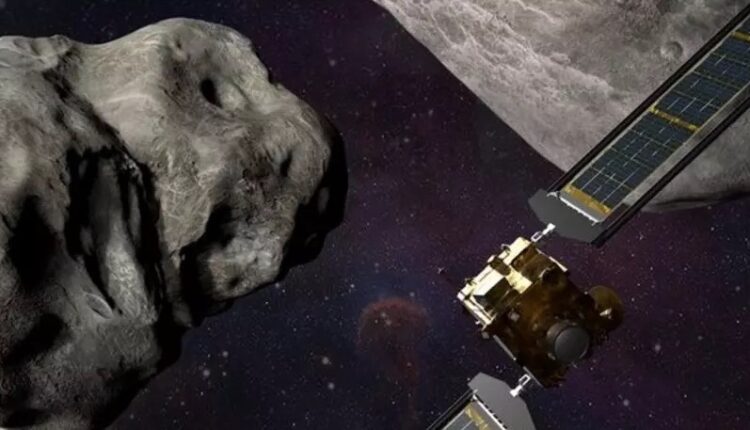
‘Climate change is the asteroid,’ say critics of NASA Earth Defense Mission
Critics of a NASA planetary defense mission said this week that instead of spending hundreds of millions of dollars learning how to manage the infinitesimal danger of Earth-bound asteroids, the government should focus on tackling the immediate—and ever-worsening—threat of climate catastrophe.
Hurtling through space at 14,000 miles per hour, NASA’s $330 million Double Asteroid Redirection Test spacecraft—DART, for short—successfully impacted the small asteroid Dimorphos on Monday evening. DART’s cameras recorded the collision, whose effects won’t be known until ground-based telescopes conduct new observations.
While dinosaur fossils are an irrefutable reminder of the destructive potential posed by rocks from outer space, most astronomers agree that the risk of a catastrophic collision is negligible—as opposed to the accelerating climate emergency.
“Climate change is the asteroid coming straight for us,” wrote Twitter user @Ecowarriorrs.
That was also the message of last year’s hit climate denial satire film Don’t Look Up, although politicians and pundits in the movie mostly ignore the comet hurtling toward Earth instead of trying to destroy it, at least until a billionaire businessman discovers it contains a fortune in rare earth minerals.
“No asteroid >1 km in diameter can impact Earth any time in the next few hundred years,” tweeted planetary astronomer Michael Busch. “But climate change is a thousands of times greater problem and must be addressed.”
While NASA climate scientist Peter Kalmus said that “it’s great that NASA is testing the ability to deflect an asteroid or comet if necessary,” the activist researcher added that “the actual clear and present danger to humanity is of course Earth breakdown from burning fossil fuels.”
British cultural consultant William Norris wrote on Twitter, “Got to love that we’re trialing a way of diverting ‘killer asteroids,’ a very unlikely threat to our future, while basically ignoring an actual, happening now, quite-possibly-will-wipe-humanity-out threat in the form of climate change.”

